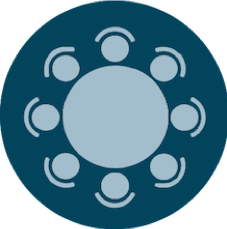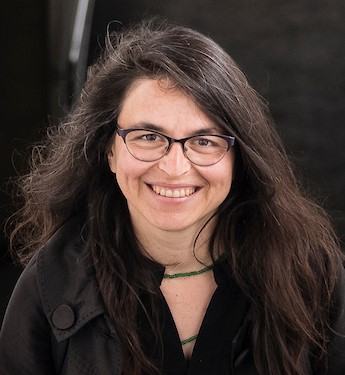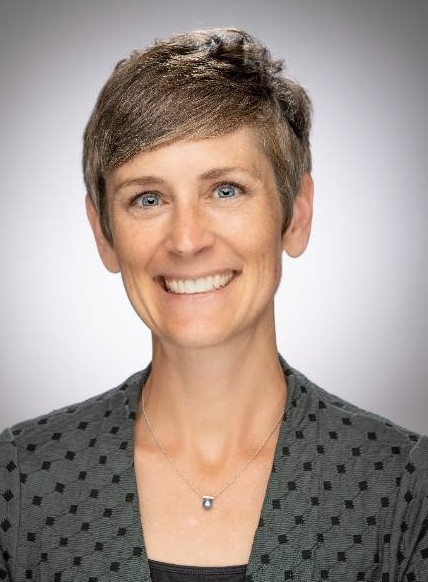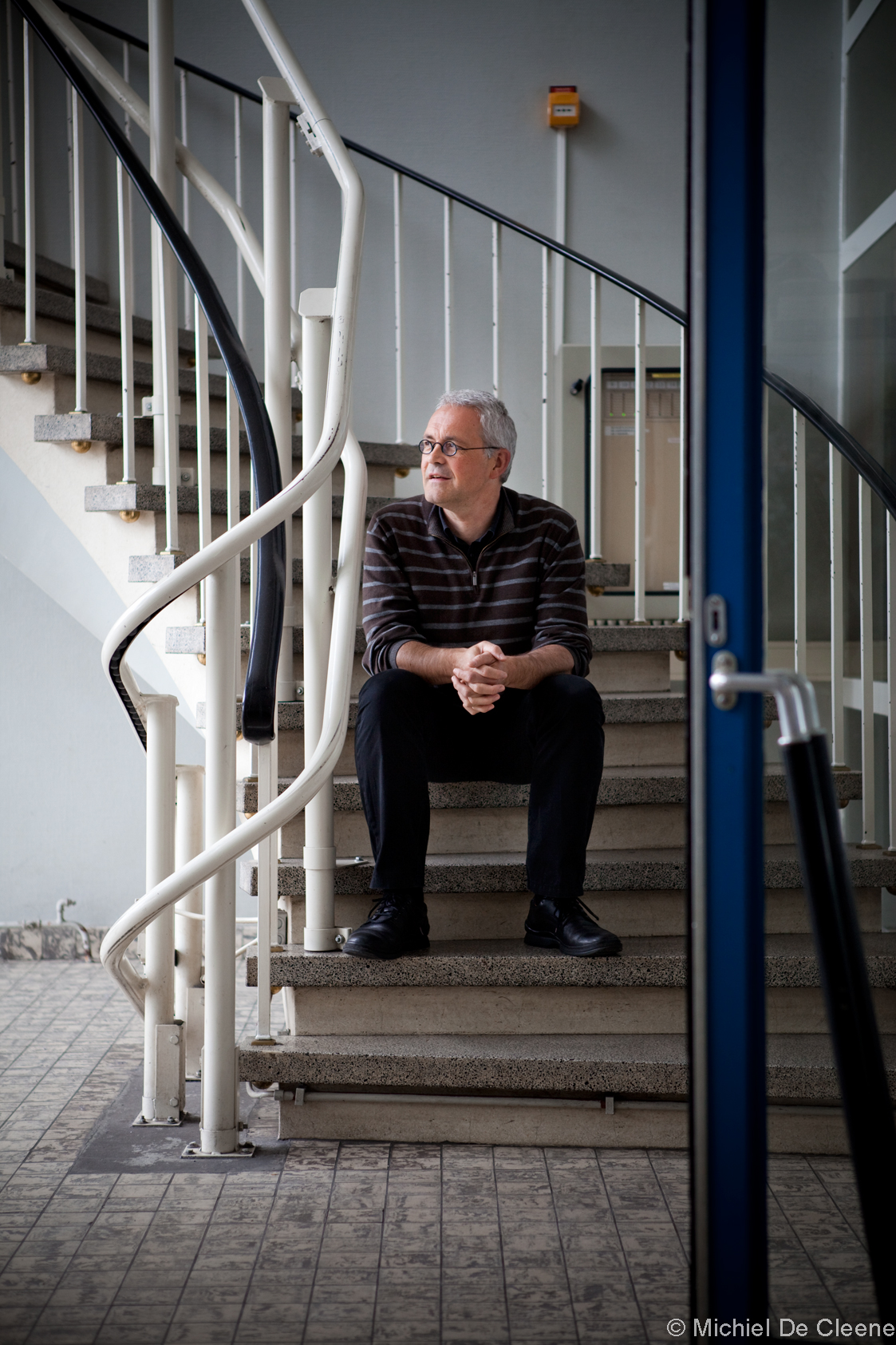SIG 10, 21 & 25 Conference 2022
THEME
Dialogue, diversity and interdisciplinarity in the field of learning and instruction
The educational landscape is continuously changing due to globalisation and the transnational movement of people, ideas and resources. Dealing with diversity and practising inclusion has brought educational practitioners, researchers, policymakers, and stakeholders many opportunities. At the same time, there are challenges and uncertainties in reflecting and renegotiating long-standing beliefs, structures, practices and power relations. In order to address the complexity of such challenges, we call for the opening of a dialogic space crossing disciplinary boundaries and promoting the encounter of different theoretical perspectives, research approaches, and pedagogical strategies and methods.
The ongoing COVID 19 pandemic has intensified the need to invent new theoretically informed, pedagogically viable, ethically appropriate, and practically valuable approaches to ensure equal educational opportunities for all sections of the world’s population. Still, we have a long way to go in solving the challenges that the pandemic has made evident for us both as educators and as researchers. Within this context of diversity and interdisciplinarity, SIG 10 (with focus on social interactions in learning and instruction), SIG 21 (with focus on teaching and learning in culturally diverse settings), and SIG 25 (with focus on dialogue among diverse educational theories) are organising a joint conference with the theme of Dialogue, diversity and interdisciplinarity in the field of learning and instruction in Belgrade, Serbia from September 7-9, 2022.
A variety of contributions are invited to engage with ideas of dialogue, diversity and interdisciplinarity to reflect and explore new approaches and practices related to learning and instruction.

SEPTEMBER 7–9TH 2022 BELGRADE

Conference venue
SIG 10, 21 & 25 Conference will be held at the Faculty of Philosophy, the University of Belgrade, located at Čika-Ljubina 18-20 in Serbia's capital Belgrade.
The venue is centrally located, close to Knez Mihajlova street and Belgrade's central pedestrian zone. The zone hosts multiple faculties of the University of Belgrade but is also a vibrant area known for culture, gastronomy and nightlife.
NOTE: Currently, there is no official mandate in the Republic of Serbia on wearing a bandage as part of the anti-COVID measures. Wearing a mask (surgical, N95/KN95) is recommended in closed and crowded places.
The conference dinner will take place on September 7th at 20 00 h at the Botanical garden Jevremovac. The garden is located at Takovska street 43. From the conference venue, it takes about 20 min to walk to the Botanical garden - see map.
It will also be possible to reach the dinner venue with one of our conference assistants. Please look for Nataša (meeting point in front of the Faculty main entrance, time 19 30).
A guided tour of the Botanical garden will be available to conference participants.
PROGRAMME
The programme
The FINAL version of the conference programme is now available.
All presentation times are given in CET.
The Book of Abstracts is now available.
NOTE on SIG 21 invited symposium - the symposium is held in "flipped format"; therefore, the audience is invited to see the presentations beforehand. See the link provided in the programme.
Last minute changes!!
Wednesday
CANCELLED - 17193 Transitions towards inclusive teacher in institutional context (Tijana Jokič Zorkić) - in session S3c
Thursday
(17085) Workshop: Game and Play - How they differ and why the difference matters? will be held in room 211 (2nd floor)
Do you have a question for Natalie Rieborn on open-access publishing? Email your question to jelena.radisic@ils.uio.no
Friday
Map of the rooms & general instructions
A map of all the rooms can be found here.
General instructions for presenters (paper session). See existing instructions for authors on the interactive session and research design forums in the submission format section.
General instructions for chairs (paper session).
SIG business meetings
All SIG business meetings are clearly marked in the programme (time and location). Please be advised that SIG 21 meeting will take place online (zoom link)
Meeting ID: 615 9292 7169
Passcode: 764306
IMPORTANT DATES
-
December 15th 2021First call for proposals
-
January 3rd 2022Submission system opens
-
January 17th 2022Second call for proposals
-
March 15th 2022Deadline for submission of proposals
-
April 20th-30th 2022Notification of acceptance of proposals
-
May 2nd 2022Registration opens
-
June 20th 2022Early bird registration deadline
-
July 1st 2022Registration deadline for presenters
-
August 15th 2022Registration ends
-
7th-9th September 2022Conference
SUBMISSIONS
How to submit your proposal?
The submissions for this conference are now closed.
Submission formats
The SIG 10 & SIG 21 & SIG 25 conference welcomes a broad variety of session types. These formats are designed to create a lively academic dialogue and to accommodate the presentation of research at various stages.
SYMPOSIA

Symposia provide an opportunity to present research on one topic, often from multiple perspectives, compiling a coherent set of papers for discussion. Symposium sessions are directed by a chair, involving three or four presenters and one discussant.
The presenters and the discussant must represent at least two different countries. The discussant will both facilitate the discussion and provide an overview of the potential contribution and significance of the papers. We recommend that each individual submission is checked for its own quality and its relevance and coherence to the topic of the symposium prior to submission.
Proposals for a symposium should consist of a general abstract (max 250 words) for the proposed symposium, as well as an abstract for each individual presentation (max 250 words). The general symposium abstract should describe the overarching theme of the symposium. In addition, an extended summary of 600–1000 words (excluding references) should be prepared for each paper of the symposium. In case of empirical papers, the extended summary should address:
1) A short theoretical framework,
2) Aims of the study and research questions,
3) Methodology
(including participants, context, materials, and data analyses),
4) Results, and
5) Discussion/conclusions
(including theoretical and/or methodological implications).
Conceptual and methodological contributions may follow a different structure.
The symposium will be reviewed as a whole. Each contributing paper will be also reviewed independently. Symposium sessions are scheduled for 90 minutes. Each presenter in the symposium will prepare an individual presentation of a maximum of 15 minutes. The discussant will have 10 minutes to present. The remaining time (20–35 minutes, depending on the amount of papers) will be used for open discussion facilitated by a session chair. The organizers of symposia must appoint their own session chair to monitor and communicate time during the session.
PAPER SESSIONS

Paper sessions involve oral presentations, followed by a discussion with the audience and other presenters in the session. Single papers can focus on theoretical, empirical, or methodological issues or provide a review of existing research on a particular topic. Empirical papers must present data and preliminary results in order to be accepted. Proposals for a paper presentation should consist of an abstract, not longer than 250 words and an extended summary of 600–1000 words (excluding references).
The extended summary of empirical papers should include:
1) A short theoretical framework,
2) Aims of the study and research questions,
3) Methodology (including participants,
context, materials, and data analyses),
4) Results and
5) Discussion/conclusions
(including theoretical and/or methodological implications).
Conceptual and methodological contributions may follow a different structure.
Single paper sessions are scheduled for 90 minutes and consist of three/four thematically clustered papers. Each presenter is offered 15/20 minutes to present their paper, followed by a discussion facilitated by a session chair.
POSTERS

A poster offers researchers a chance to present their work in a visual format. In addition to preparing a physical poster, presenters should be prepared to make a brief presentation and/or pitch of their research (up to 5min). Poster presenters will have an opportunity to discuss their research with the audience and other presenters in the session. The discussion will be facilitated by a session chair. Proposals for a poster presentation should consist of an abstract of not more than 250 words and an extended summary of 600–1000 words.
The extended summary for empirical studies should include:
1) A short theoretical framework,
2) Aims of the study and research questions,
3) Methodology (including participants, context, materials and data analyses),
4) Results and
5) Discussion/conclusions (including theoretical and/or methodological implications).
Conceptual and methodological contributions may follow a different structure.
INTERACTIVE SESSIONS

Interactive sessions are scheduled for 90 minutes as a live session. This type of session is characterized by an emphasis on active interaction and dialogue. Interactive sessions can be framed as workshops, roundtable discussions, or data sessions. The formats are described below:
a) Workshops: these provide an opportunity to familiarize participants with an aspect of research or teaching practice, so that questioning, and discussion are suitably informed. For example, a workshop can provide an in-depth introduction to a theoretical or methodological approach, which can then be further explored and critically scrutinized for its potential and limitations to address key issues in research on learning and education.
b) Data sessions: these provide an opportunity for interactive discussion around empirical data. Data sessions consist of a short (max 10 minutes) introduction to the data, followed by analytic work by the participants (reading the transcripts/Watching the videos/discussing in pairs) and discussion.
c) Roundtable discussions: these comprise an exploratory collective discussion on a specific theoretical or empirical issue, hot topic or a controversial claim from multiple perspectives. It is possible to invite representatives of stakeholders, policy makers, associations, research institutes or companies to provide alternative views on the topic collectively discussed.
All preparations and facilitation of sessions are made by the presenter.
Proposals for interactive sessions should have the form of an abstract of no longer than 250 words and an extended summary of 600–1000 words and should contain: 1) the topic of the session, 2) a rationale, 3) the objectives, 4) a description of the activities planned, 5) the contribution expected from the participants, 6) possible outcomes, 7) the duration (the conference organizers might request to revise the organization and duration based on the results of the review process).
RESEARCH DESIGN FORUM
The aim of the Research Design Forum is to offer researchers the opportunity to collectively discuss research ideas, receive feedback on their research plans or proposals, and possibly contribute to establish or strengthen research collaboration among participants. This format is for those who are e.g. preparing for doctoral research, preparing a research proposal, seeking for partners for international projects, or about to start their data collection. The presenters should be prepared to present their research ideas during an oral presentation of max. 15 minutes. A total of 90 minutes will be reserved for the discussions of two to three research plans. The presenters of each research idea to be discussed are invited to indicate 1–2 possible experienced scholars as discussants who might provide comments during the session. In case discussants are not indicated in the submitted proposal, the conference organizers will assign a discussant based on the topic of the research idea.
Proposals for the Research Design Forum should consist of an abstract and an extended summary. The abstract should be no longer than 250 words.
The extended summary of 600–1000 words excluding references should include: 1) A short description of the research idea, including its theoretical grounds, 2) The aim of the research and possible research questions, 3) Methodology (including participants, context, design and materials) and 4) Planning of the research (e.g. instrument development, data collection and writing). In addition, the presenter is asked to highlight elements in the research design that require feedback.
Review Criteria
The following criteria apply to single paper, symposium and poster submissions:
- Relevance to the domain of SIG10 / SIG321 / SIG 25 or the synergy between the three SIGs
- Overall quality and scientific originality
- Significance for theory, practice and policy
- Theoretical framework
- Research method and design
- Clarity of (preliminary) results, discussion and conclusions
The following criteria apply to interactive sessions & research design forums:
- Goal of project idea is clear (e.g., publication)
- Topic area is made explicit
- (Potential) research methods are mentioned
- Planned outcomes described
- Proposed interactivity in line with submission guidelines
REGISTRATION
Registration for the 2022 conference is now closed.
KEYNOTES
Keynote 1

Tania Zittoun- The pleasure of thinking and learning all lifelong
People learn and develop from birth to death, in situations aimed at being educational, and in all kinds of other situations. Doing so, people build diverse sorts of knowledge – some corresponding to formal curricula, others corresponding to one’s curiosity, interest, or need to adjust to the demands of the social world. Over the last 10 years, studies adopting a sociocultural approach have theorised and accounted for a series of important dynamics: the role and modalities of social interactions and dialogue in learning and development; the sense people attribute to the object of knowledge; the role of imagination in these activities; and the continuities between knowledge in formal settings and elsewhere, from childhood to late adult life. In this keynote, I propose to look back at this research, and to ask one question: what about the pleasure of thinking and learning? My proposition is that, by putting pleasure back in the picture, we may open new doors for the future of research in learning and development.
Keynote 2

Melissa Gresalfi- (Re)designing for identities: The potential of hybrid spaces
Although formal schooling occupies relatively little time over the average lifespan, the influence of that time is significant. It is often in school that we develop ideas about who we are, what we are capable of, and how we like to engage with new ideas. In some disciplines, such as mathematics, historical and ingrained practices have served to offer very narrow opportunities to learn and to engage, opportunities that fail to represent the true potential of the discipline. These narrow opportunities lead many students, and later adults, to conclude that they are not expected or entitled to be seen as mathematically competent. The challenge is how to support change—change in curriculum, change in classroom practice, change in assessment, and change in the overall narratives about what it means to know and do mathematics, and who can do so. In this talk, I explore the potential of hybrid spaces—spaces that intentionally bring more than one practice together—to perturb and transform existing mathematics practice. Looking across research on video games, textile art, play, and computer science, I explore designs that intentionally created hybrid learning spaces with the goal of expanding new ways of engaging mathematics. Describing both failures and shortcomings as well as successes and potentials, I propose a model of designing for identities that documents how hybridity can influence the complexity of disciplines, practices, and narratives.
Keynote 3
Geert Van Hove - When disability enters the classroom
Schools around the world rely on a 'grammar of schooling' that tends towards conservatism and is full of ableism.
To accommodate children and young people who do not meet ableist expectations, many countries have therefore turned to special schools that have often become a parallel circuit. Since 1994 with the Salamanca Statement and certainly since 2006 with the UNCRPD, many countries have tried to switch to inclusive education.
In many countries, this transition has not been without its struggles. In some countries, after inclusion experiments, people even turn back the clock and plead for a 'return to special schools'.
So what exactly happens when disability enters the classroom? And is a 'human rights' approach sufficient to influence the 'grammar of schooling'?
I want to bring you an analysis in which concepts such as 'the deep structure of exclusion' (Slee, 2019) and 'social capital -trust and confidence' (Allan, 2020) will be deployed in an attempt to question the dominance of the special education framework over inclusive education.
PRACTICAL INFORMATION
Where to stay?
There are many places in the proximity of the conference venue. The list of suggested hotels below is with reduced prices for the conference participants. When booking please refer to "EARLI-SIG 10&21&25 conference "Dialogue, Diversity and Interdisciplinarity in the field of learning and instruction". In addition, when contacting the property please Cc the conference local travel partner - dobrila@miross.rs.
All shown rates include breakfast
Hotel Palace - €49.50 (single room), office@palacehotel.rs
Hotel Majestic - €60.00 (single room), office@majestic.rs
Hotel Indigo - €111.36 (standard room) and €141.36 (premium room), nikola.milenkovic@ihg.com
Belgrade Art Hotel - €91.36 (single room), sladjana@belgradearthotel.com
Envoy Hotel - €91.36 (single room), info@envoyhotel.rs
How to get around?
Most of you will arrive in Belgrade by air. Please be advised that the international airport Nikola Tesla is under construction, so there may be changes in the local stops and routes around the airport.
You can reach the city centre by taxi or public transport. We advise you to use the option of a fixed taxi price offered at the airport (check out the baggage area for more information). Here is a tentative guide for the local taxi prices. Most taxis will only accept cash in local currency. In the baggage area (belt 4) you will find ATM's as well as an exchange office at the exit of the area.
Taxi from the airport can also be booked via our conference local travel partner Miross -dobrila@miross.rs
Good to know
The local currency is the Serbian dinar (RSD) (1 EUR=117 dinar). You will find several exchange offices around the conference venue.
Most places (local shops, restaurants, etc.) will accept international cards (VISA, Master, AMEX). If you use a taxi service, please have the local currency with you. We advise using official taxi associations registered in Belgrade.
Water in Belgrade is safe for use.
Public transport operates via buses, trolley-buses and trams. A single-ride ticket is 89 dinars (80 cents). There is also an option of obtaining daily, three and five-day tickets (250 RSD, 700 RSD or 1000 RSD). These can be purchased at local kiosks (Please add the cost of 40 RSD fro the card holding the information about your ticket). All tickets need to be validated upon entry of the first vehicle. Kiosks only accept local currency in cash. Single-ride tickets are timed to 90 minutes. A single-ride ticket can also be obtained from the driver (150 RSD) or by holding your Mastercard (Paypass) over the validator on the bus, tram and trolley bus.
Internet access - Please be advised that during the conference eduroam services will be available. In addition, a separate wifi network will be set up, and the login credentials will be available onsite.
rooms 101 & 103 (SSID: 101-103, pass: G5DpcE3E)
room 105 (SSID: II-sprat-2, pass: SNnhYgM9)
Check the local weather
Should you need a pharmacy, the local word is "APOTEKA".
More useful links
Do you need more information?
Contact us at sig102125conference@gmail.com

Explore Belgrade
Belgrade can be an exciting place to explore. Check out some of our recommendations!
Explore the pedestrian zone of Knez Mihailova street and its surrounding area, or visit the oldest section of urban Belgrade - Kalemegdan, a great place also if you want to jog. The bohemian Skadarlija, Kosančićev venac tucked between the blocks or Dorćol with its rich history, all offer diverse attractions.
"A city within the city", as they call Zemun and Savamala District with the newly developed Belgrade waterfront, allows you to be near the bank of two great rivers that meet here in Belgrade - the Sava and the Danube. Would you like to explore Belgrade by boat? Ada Ciganlija or the"Belgrade sea", is now officially one of the three most beautiful city islands in the world.
St.Sava Church is a monumental structure seen from whatever side you approach the centre of Belgrade.
If museums and arts are your "thing" here are some great options - 2-3 minutes away from the conference venue are the Ethnographic museum and the National museum. If you plan to visit the Nikola Tesla museum, do plan your visit ahead. More about museums and arts.
An exciting way to explore Belgrade could be through some of the Belgrade walks, by bus or why not try the Segway tour.
Find out more at the Tourist organisation of Belgrade
PS. If this is the first time you explore Belgrade or Serbia, there are some things you should know about our local gastronomy, wine and rakija.
What else is there?
The Capital of culture 2022 - explore Novi Sad
Local Organising Committee
Aleksandar Baucal (University of Belgrade, Serbia)
Smiljana Jošić (Institute for Educational Research, Serbia)
Marina Videnović (University of Belgrade, Serbia)
Nataša Simić (University of Belgrade, Serbia)
Tijana Jokić (Center for Educational Policy, Belgrade)
Jovan Ivanović (University of Belgrade, Serbia)
Tijana Nikitović (University of Belgrade, Serbia)
Scientific Organizing Committee
Representatives from the local organising committee
Aleksandar Baucal (University of Belgrade, Serbia)
Smiljana Jošić (Institute for Educational Research, Serbia)
SIG 10 - Social Interaction in Learning and Instruction
Valérie Tartas (University of Toulouse, France)
Jelena Radišić (University of Oslo, Norway)
Jasmiina Leskinen (JURE) (University of Helsinki, Finland)
SIG 21 - Learning and Teaching in Culturally Diverse Settings
Gudrun Ziegler (Luxembourg multi-LEARN institute, Luxembourg)
Sikunder Ali (Norwegian University of Science and Technology, Norway)
Becky Bergman (JURE) (Chalmers University of Technology, Sweden)
Nina Bonderup Dohn (University of Southern Denmark, Denmark)
Giuseppe Ritella (University of Helsinki, Finland)
Alexandra Nordström (JURE) (University of Helsinki, Finland)

